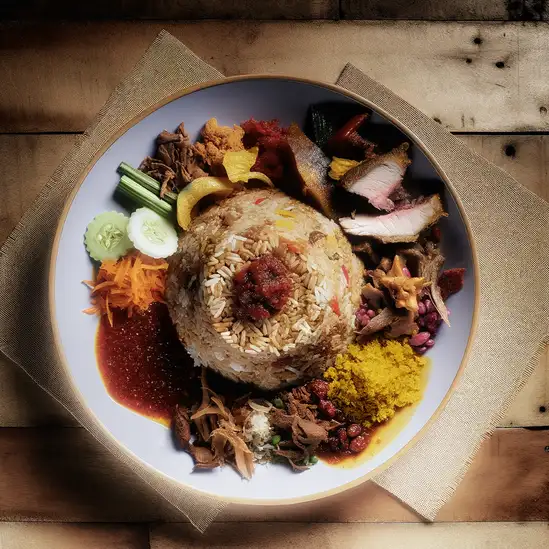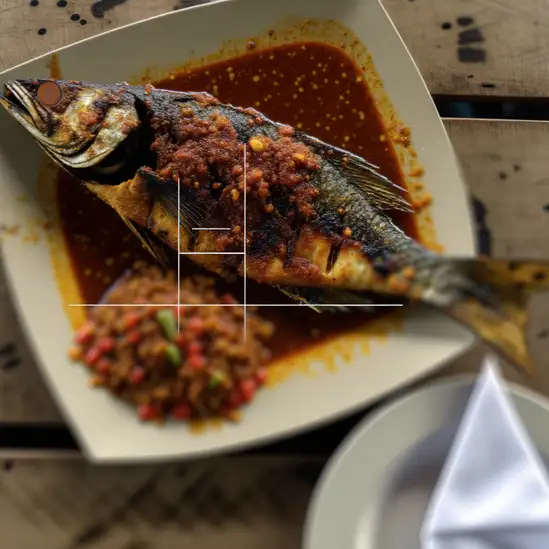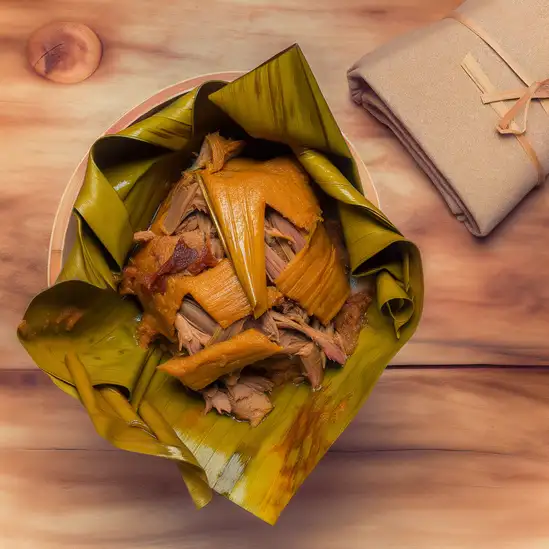


If you ever find yourself craving a slower pace wrapped in natural beauty,Amed in Indonesia is the kind of place that quietly seeps into your soul. Imagine waking up to the gentle sound of waves lapping against black volcanic sand beaches,the air thick with the scent of salt and frangipani flowers. It’s a coastal village where time feels unhurried,and the rhythm of life is set by the rising sun and the fishermen’s boats drifting out to sea. The vibe here is effortlessly warm and welcoming,with locals greeting you like an old friend and a community that feels deeply connected to the ocean. Walking through Amed,you’ll notice the vibrant colors of fishing boats bobbing in the water,the intricate nets drying in the sun,and the lush greenery that frames the coastline. The underwater world is just as mesmerizing—snorkeling or diving here reveals coral gardens teeming with life,from playful clownfish to graceful sea turtles. At night,the sky stretches wide and clear,stars sparkling so brightly it feels like you could reach out and touch them. What really makes Amed special is its blend of simplicity and authenticity. The local markets buzz with fresh spices and tropical fruits,and small warungs serve up dishes bursting with flavor—think spicy sambal,fresh grilled fish,and sweet,juicy mangoes. It’s a place where you can lose yourself in nature,savor genuine moments,and come away feeling refreshed and inspired.
The information on this page is currently being reviewed by Tripkliq and should be used as a guide only
Eng word: Hello
Eng pronunciation: Om Swas-tee-as-too
Local language: Om Swastiastu
Eng word: Goodbye
Eng pronunciation: Om Shan-tee Shan-tee Shan-tee Om
Local language: Om Shanti Shanti Shanti Om
Eng word: Thank you
Eng pronunciation: Sook-smah
Local language: Suksma
Eng word: How much
Eng pronunciation: Nyak koo-deh
Local language: Nyak kude
Eng word: Toilet
Eng pronunciation: Kah-mar keh-cheel
Local language: Kamar kecil
Eng word: Help me
Eng pronunciation: Too-loong-een tee-ang
Local language: Tulungin tiang
Eng word: Yes
Eng pronunciation: Eeng-gee
Local language: Inggih
Eng word: No
Eng pronunciation: Too-sing
Local language: Tusing
Eng word: Excuse me
Eng pronunciation: Am-poo-rah
Local language: Ampura
Amed is renowned for its traditional salt farming, a practice that has been passed down through generations. The unique pyramid-shaped salt mounds are a picturesque sight and a testament to the area's rich cultural heritage.
During World War II, a Japanese patrol boat was sunk off the coast of Amed. Today, the shipwreck is a popular dive site, attracting divers from around the world to explore its underwater history.
Near Amed, you can find Bali Aga villages, such as Tenganan, where the original Balinese people live. These villages offer a glimpse into ancient Balinese culture, traditions, and architecture.
Mount Agung, Bali's highest and most sacred volcano, has a significant influence on Amed. The mountain's eruptions have shaped the landscape and the lives of the people in the region.
Amed is home to several traditional fishing villages. The local fishermen still use age-old techniques and traditional jukung boats, providing a unique cultural experience for visitors.
The beaches in Amed are known for their distinctive black sand, a result of volcanic activity from Mount Agung. These unique beaches offer a striking contrast to the typical white sand beaches found elsewhere in Bali.
Amed is famous for its underwater temple garden, a submerged site featuring statues and structures that create a mystical diving experience. This site showcases the blend of natural beauty and cultural heritage.
The coral reefs in Amed are some of the most vibrant and diverse in Bali. These reefs are a haven for snorkelers and divers, offering a chance to see a wide variety of marine life up close.
Amed hosts several cultural festivals throughout the year, celebrating Balinese traditions, music, and dance. These festivals provide an immersive experience into the local culture and community spirit.
In Amed, the most common Power Adaptor is Type C, Type F.



A Balinese-style satay made from minced meat mixed with grated coconut and spices, wrapped around bamboo sticks and grilled to perfection.

A mixed rice dish served with a variety of side dishes, including vegetables, meats, and sambal, reflecting the diverse flavors of Indonesian cuisine.

Grilled fish marinated with spices and served with sambal and rice, showcasing the fresh seafood available in Amed.

A traditional Indonesian salad made with boiled vegetables, tofu, and hard-boiled eggs, topped with a rich peanut sauce.

Slow-cooked duck marinated with a blend of spices and wrapped in banana leaves, resulting in tender and flavorful meat.
If you find yourself wandering through Kota Denpasar,you’ll immediately notice its lively heartbeat—a city that hums with everyday life yet carries a deep cultural rhythm beneath the surface. It’s not the polished tourist hub like southern Bali,but that’s exactly what makes it so captivating. The streets buzz with scooters weaving through markets where the scent of fresh spices mingles with the earthy aroma of tropical fruits. Vendors call out in warm,melodic tones,inviting you to taste something new or simply share a smile.
Denpasar feels like the authentic soul of Bali,where tradition and modern life dance side by side. You’ll see women in vibrant kebayas carrying offerings to temples,while nearby,young artists sketch murals that splash color onto old walls. The city’s pulse is both chaotic and comforting,with the clatter of street food stalls serving up fragrant nasi campur and the gentle chime of temple bells weaving through the air.
What’s truly special is how Denpasar invites you to slow down and soak in its layers—whether it’s the warmth of a local’s greeting,the taste of freshly brewed Balinese coffee,or the sight of intricate carvings on ancient temples tucked between bustling streets. It’s a place where you don’t just visit; you become part of the daily story,feeling the city’s spirit in every step you take.
If you ever find yourself craving a place where time slows down just enough to savor every moment,Ubud is that kind of sanctuary. Nestled in the lush heart of Bali,this town hums with a gentle rhythm—part spiritual retreat,part creative hub. Walking through its streets,you’ll catch the scent of frangipani and incense mingling with the earthy aroma of wet rice fields nearby. The air feels alive,filled with the soft chatter of locals,the distant clink of gamelan music,and the occasional call of a rooster greeting the dawn.
Ubud’s charm lies in its seamless blend of tradition and artistry. Temples with intricate stone carvings peek through vibrant greenery,while open-air markets burst with colorful textiles,hand-carved masks,and fresh tropical fruits. You can sip on a rich,earthy cup of Balinese coffee at a cozy café,watching artisans craft delicate silver jewelry or dancers rehearsing for an evening performance. It’s a place where culture isn’t just observed—it’s lived and breathed.
What really stays with you is the warmth of the people and the sense of connection to nature and spirit. Whether you’re wandering through the terraced rice paddies,joining a yoga class overlooking the jungle,or simply sitting by the Campuhan Ridge Trail at sunset,Ubud invites you to slow down,breathe deeply,and soak in a world that feels both ancient and vibrantly alive.
Imagine stepping into a place where the sun kisses your skin,the ocean hums a steady rhythm,and the air carries the scent of salty waves mixed with sizzling street food. That’s Kuta for you—a lively beach town in Bali that pulses with energy but still feels effortlessly laid-back. From the moment you arrive,you’re wrapped in a warm,welcoming vibe that’s both vibrant and relaxed. The beach stretches wide,dotted with surfers catching waves and locals selling fresh coconut water,while the sunset paints the sky in fiery oranges and pinks.
Walking through Kuta’s streets,you’ll hear a blend of languages,laughter,and the occasional beat of gamelan music drifting from a nearby warung. The town’s character is a colorful mix of traditional Balinese culture and a buzzing international crowd,creating a unique atmosphere where ancient temples sit just blocks away from lively markets and buzzing nightlife. The aroma of satay grilling over open flames mingles with the tropical flowers blooming nearby,inviting you to slow down and savor every moment.
What makes Kuta truly special is how it balances excitement with ease. Whether you’re learning to surf,bargaining for handmade crafts,or simply lounging on the beach with a fresh mango smoothie in hand,there’s a genuine warmth in the air. It’s a place that invites you to dive into its rhythm,soak up its stories,and leave with a heart full of memories and a little more sun-kissed than when you arrived.
If you’re dreaming of a place where laid-back beach vibes meet vibrant energy,Seminyak is that sweet spot. Imagine waking up to the gentle hum of waves brushing against golden sands,the salty breeze mingling with the scent of frangipani and sizzling street food. It’s a place where mornings start slow with a fresh coconut in hand,and the day unfolds with a mix of chic boutiques,bustling markets,and cozy cafes spilling onto sun-dappled streets.
What really makes Seminyak special is its effortless blend of tradition and trend. You’ll find ancient Balinese temples tucked between sleek beach clubs,and local artisans selling handwoven textiles right next to stylish galleries. The town pulses with a creative spirit—whether it’s the vibrant street art,the soulful sounds of gamelan music drifting from a nearby ceremony,or the tantalizing aroma of spices from warungs cooking up authentic dishes.
As the sun dips low,Seminyak transforms. The sky blazes with fiery oranges and pinks,and the beach comes alive with laughter,clinking glasses,and the soft strum of guitars. Dinner might be fresh seafood grilled over coconut husks or a plate of spicy satay enjoyed under twinkling fairy lights. It’s a place that invites you to slow down,soak in the moment,and savor the rich tapestry of sights,sounds,and flavors that make this corner of Bali unforgettable.
If you’re craving a place where laid-back beach vibes meet a buzzing creative spirit,Canggu is where you want to be. Imagine waking up to the gentle crash of waves,the salty breeze mingling with the rich aroma of freshly brewed coffee from a nearby café. It’s a place where surfers paddle out at dawn,and yogis stretch under swaying palm trees,all while the sun paints the sky in soft pastels. The energy here feels both relaxed and alive,like the town itself is breathing in rhythm with the ocean.
Walking through Canggu’s streets,you’ll notice a vibrant mix of rustic warungs serving up spicy sambal and fresh seafood,alongside trendy spots dishing out smoothie bowls and artisan espresso. The soundscape is a blend of laughter,indie tunes spilling from open windows,and the occasional clink of glasses as friends toast to another perfect day. The rice paddies that frame the town add a lush,green contrast to the sandy shores,reminding you that this place is as much about nature as it is about culture.
What really makes Canggu special is its welcoming spirit. It’s a melting pot of locals,expats,and travelers who all seem to share a love for good vibes and genuine connection. Whether you’re exploring street art,hunting down the best taco stand,or simply watching the sunset from a beach bar,there’s a warmth here that makes you feel like you’ve found a second home. Trust me,once you’ve felt Canggu’s pulse,you’ll want to come back again and again.
If you ever find yourself wandering through Mataram,you’ll immediately notice a rhythm that’s both lively and laid-back—a city where tradition and everyday life blend effortlessly. The streets buzz with the chatter of locals bargaining at the markets,the scent of sizzling satay mingling with fresh tropical fruits,and the occasional call to prayer weaving through the air. It’s a place where the warmth of the people matches the tropical sun,making you feel instantly welcome.
Walking around,you’ll catch glimpses of vibrant Sasak culture everywhere—from the intricate woven textiles displayed in small shops to the traditional music drifting from community gatherings. The city isn’t just a gateway to Lombok’s natural wonders; it’s a cultural heartbeat,alive with festivals,local crafts,and stories told over cups of strong,sweet coffee. The architecture is a charming mix of old and new,with humble wooden houses standing alongside bustling street stalls and modern cafes.
What I love most about Mataram is how it invites you to slow down and savor the moment. Whether you’re sipping a fresh coconut by the beach or exploring the lively night markets,there’s a genuine sense of connection here—between people,place,and tradition. It’s not just a stop on your trip; it’s a place that stays with you,long after you’ve left.
Scammers may install skimming devices on ATMs to steal card information and PINs from unsuspecting tourists.
Tourists renting snorkeling gear or other beach equipment may be charged excessive fees or accused of damaging the equipment upon return.
Some money changers may use sleight of hand or miscount money to shortchange tourists during currency exchanges.
Scammers may approach tourists claiming to collect donations for local charities or causes, but the money is pocketed instead.
Scammers may sell fake tickets for attractions or tours, leaving tourists stranded or unable to access the promised services.
Unlicensed or fake tour guides may offer their services, providing little value or incorrect information while charging high fees.
Tourists may be accused of damaging rented motorbikes, even if the damage was pre-existing, and are forced to pay for repairs.
Vendors may inflate prices of souvenirs or handicrafts significantly when selling to tourists, expecting them to negotiate.
Drivers or transport providers may charge tourists significantly higher prices for short trips, especially if they are unfamiliar with local rates.
Some boat operators may offer snorkeling or diving trips without proper licenses or safety measures, putting tourists at risk.
Indonesia has very strict drug laws, and this includes Amed. The possession, use, or trafficking of illegal drugs can result in severe penalties, including long prison sentences and even the death penalty. Tourists should avoid any involvement with illegal drugs and be cautious about any substances they are carrying or consuming.
In Amed, Indonesia, smoking is generally allowed in public places, but there are restrictions similar to other parts of the country. Smoking is prohibited in certain public areas such as hospitals, schools, and public transportation. Many restaurants and hotels may have designated smoking areas. It is always a good idea to look for 'No Smoking' signs and respect local regulations.
Vaping is subject to similar regulations as smoking in Amed. While it is not explicitly banned, it is advisable to use vaping devices in designated smoking areas and avoid vaping in places where smoking is prohibited. Be mindful of local customs and the comfort of others around you.
What are other people saying about Amed?
Recent Social posts about Amed
There is nothing to show you for now.